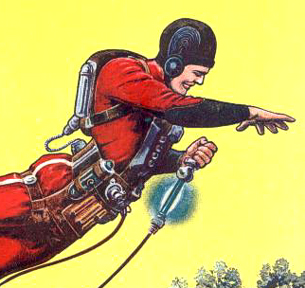Talking sexy science fiction, over at the Guardian Books blog
/Spent all day yesterday talking about science fiction and literature on the Guardian Books blog. The row is still going on, feel free to pop across and join in.
I'll copy over one of my contributions to give you a flavour...

(From the Guardian Books blog:)
A lot of those who don't like SF, and who seem not to have read much of it (and fair enough) are speaking about SF on this thread as if it were naive and unaware of its failings. But SF is one of the most intensely self-aware and reflexive genres. SF writers think and argue about SF, its vices and its virtues, all the time, always have.
Frederik Pohl wrote one of the best defences of SF in his autobiographical essay "Ragged Claws", collected in Hell's Cartographers (edited by Brian W. Aldiss and Harry Harrison, and a book I recommend highly to anyone interested in either writing or science fiction.)
I'm going to quote, at length, his defence of an almost indefensibly bad writer, E. E. "Doc" Smith, the inventor of space opera (and yes, I read a ton of Smith's stuff between the ages of twelve and sixteen. I even read the unreadable Spacehounds of IPC, under my desk in Irish class...)
Pohl first takes apart E E "Doc" Smith's awful failings, which are many. Then he writes:
"And yet-
None of this greatly matters. It turns many readers off, and that is a pity; but there are few novels that don't turn a good many readers off for one reason or another, and to close one's mind to Doc Smith because of his conspicuous flaws is to miss his conspicuous virtues. One might as well reject Moby Dick because of Melville's really pathetic inability to write the sounds of Chinese dialect, or because of his gross mis-statements of the natural history of cetaceans.
What Smith set out to do he did, and he did it superlatively well, and he taught a hundred other writers how to do it.
(...)
All of the things Doc Smith did badly fade in comparison with the one thing he did well. He taught a whole generation how to dream on a cosmic scale.
In the bestiary of science fiction, Doc Smith was a fiddler crab. The male fiddler has one huge claw. It is so big and clumsy that he can't use it to fight, defend or eat, he can only use it to brandish in a sexy, provocative way, impressing the hell out of the dewy-eyed female fiddler crabs.
Smith is not sf's only fiddler crab, they run rampant over the pages of the early Amazings and they are with us today: Harlan Ellison is one, so is A E van Vogt, so is Ray Bradbury. They are characterized by such extreme hypertrophy of one aspect of their writing that we forgive them conspicuous lacks in others.
What Doc Smith, and Edgar Rice Burroughs, and a dozen others gave us was a new way of looking at the world, at all the worlds. In the grimy, chill early thirties the vision was revelatory. It is revelatory today."
-Frederik Pohl, "Ragged Claws", from Hell's Cartographers, 1975.
And let me second Readgrin's post, way up the thread, recommending Frederik Pohl's Gateway. A beautiful, thoughtful novel which takes the legacy of Smith and Burroughs and adds bleaker, modern layers of doubt, of despair in the face of the enormity and unknowability of the universe. (I also second, or third, McLeodP's plug for Roadside Picnic
, a great piece of Russian SF by Boris and Arkady Strugatsky. Those two books, cold-war era US and Russian, read very well together.)
-Julian Gough
London, Boherlahan, Berlin
http://www.juliangough.com/
"The novel rejigged while you wait"
